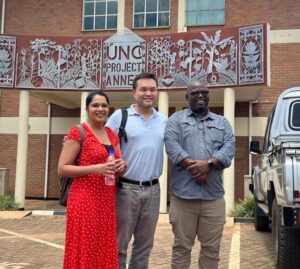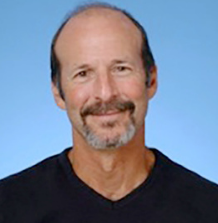The Malawi Government has a strong commitment to caring for its citizens, often sending patients abroad, to countries such as India, for cardiac procedures that aren’t available at home. But these opportunities are limited, compared to the needs of the country’s population of 21 million, and follow a process much like a lottery. As a result, the morbidity and mortality due to treatable cardiovascular conditions is unacceptably high. The latest Global Burden of Disease report in the Journal of the American College of Cardiology, shows a concerning uptick in heart disease-related deaths, from 12.4 million in 1990 to 19.8 million in 2022.

“There is not a single cardiologist in all of Malawi and certainly no facility for even the simplest structural intervention, said Irving Hoffman, PA, MPH, international director of operations for the UNC Institute for Global Health and Infectious Disease and the international director of UNC Project Malawi. “Because of the high prevalence of congenital heart disease, rheumatic heart disease, and cardiovascular disease there is a huge unmet need for proper screening, diagnosis and treatment of heart disease in Malawi.”
Hoffman approached UNC Cardiology to discuss how global health work successfully conducted in Nicaragua, might be replicated in Malawi.
In 2015, a group of UNC Intervention Cardiologists led by Michael Yeung, MD, teamed up with Project Health for Leon (PHL) to pioneer minimally invasive structural interventions for patients with heart disease. Patients who would have died from valvular or congenital heart disease were able to get interventional and surgical procedures in Leon by teams sent by PHL. And since then, an entire team of cardiology healthcare providers from UNC have been working to improve access to medical care through education, the acquisition of appropriate medical technology, and, when necessary, by direct patient consultation and medical and surgical care, both in Nicaragua and in the U.S.
Opportunities For Training and Education
As Hoffman described Malawi’s limitations, Thelsa Thomas Weickert, MD, and Michael Yeung, MD, wanted to visit Lilongwe’s Kamuzu Hospital. When they arrived, the challenges were different from those in Nicaragua.

“By the time we see patients in Nicaragua, they have already been screened and initial diagnostics have been completed. But in Malawi, we saw the whole spectrum of patients, from uncontrolled hypertension to complex congenital disease and advanced heart failure,” Yeung said.
Misdiagnoses due to limited testing capabilities and limited access to medications have created challenges in the Malawi healthcare setting.
“In one case, a young woman who had just delivered a baby was thought to have postpartum cardiomyopathy(heart failure),” said Weickert. “When I echoed this patient, her left ventricle was pumping normally. But she did have a large secundum atrial septal defect (ASD), a congenital heart defect which is actually a hole in the heart; an often treatable condition, if diagnosed early.”
“In another case, a young child was sent outside the country to repair a ventricular septal defect; however, this was an incorrect diagnosis, which was not only difficult for the patient and his family, but also a missed opportunity for someone else to travel for specialized care.”
Pursuing Heart Health in the Warm Heart of Africa.
The new cardiology partnership will seek to improve cardiovascular health and patient care across the spectrum of disease prevention. Ultimately, Yeung and Weickert would like to help the internists at Kamuzu Central Hospital, where UNC Project Malawi is located, develop an infrastructure of services; however, the immediate goal will be a remote educational program, with training in diagnostics and patient assessment.
“The global burden of cardiovascular disease is only beginning to be realized,” said Yeung. “We are very excited to be partnering with UNC Project Malawi to develop a cardiovascular global health program capable of addressing this emerging problem.”
